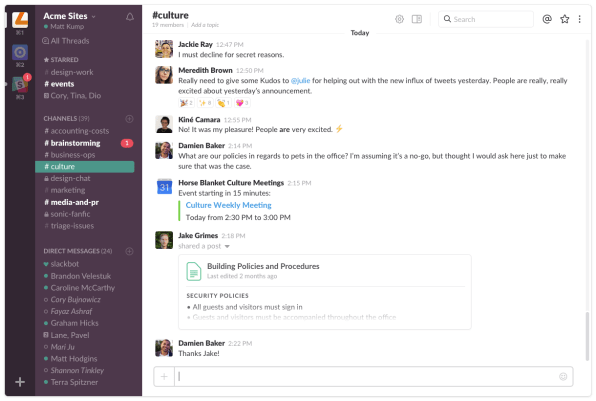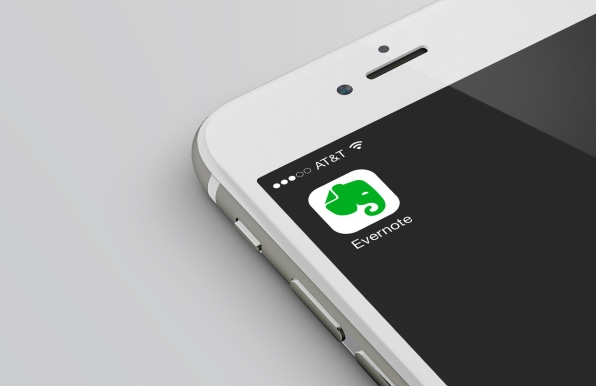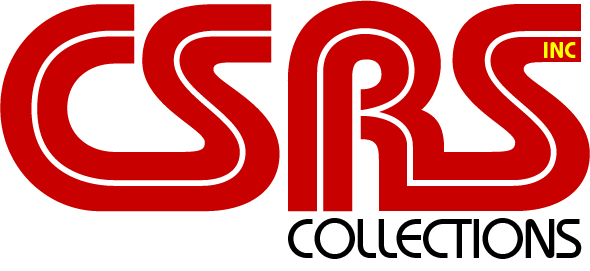Cut down on email, manage your calendar, find your focus. If these tools work for people at the top of their game, they might be worth a download.

As you set your goals for 2019, you may be looking for new strategies to boost your productivity. Perhaps you want to find a way to better manage your email or organize your to-dos on a day-to-day basis. We asked a number of CEOs which apps and tools help them–and their teams–stay on task and fit more into each day. Here are a few to try out.

FOR STAYING IN TOUCH
You may find Slack equal parts productivity tool and productivity killer. But for many CEOs, Slack remains the simplest way to communicate with their teams. “I’m a huge fan of Slack,” says Jessica Matthews, the CEO of energy startup Uncharted Power. “It reduces email and allows for an ‘instant message’ form of communication that we find to be highly effective.”
For the team at cannabis startup Flow Kana–as at many companies–Slack serves as a way to bridge the gap between far-flung colleagues. “We have a team spread throughout the state of California in roles ranging from trimming and processing, to manufacturing, to sales and corporate operations,” says Flow Kana CEO Michael Steinmetz. “In addition to daily communications, we’ve found Slack unifies us in many ways, bringing our team in different locations and job types closer together.”

FOR KEEPING A TO-DO LIST
For Matthews, who calls herself a “huge proponent” of to-do lists, Evernote is her tool of choice. Her tip: Put more on your list than you can complete. “I like to make my to-do lists longer than anything I could feasibly accomplish in a day, so that I am never satisfied and always pushing myself,” she says.
Nicole Centeno, the CEO of food startup Splendid Spoon, uses her inbox as a “running to-do list,” which means she keeps no more than 25 emails at a time. “I’m pretty no-frills with the apps I rely on,” she says. “I prefer Google Calendar to most other organization apps because it allows me to prioritize meetings as well as tasks.” When she’s on the go and needs to jot something down, she turns to Captio, a note-taking app that delivers all notes to her inbox.
FOR MANAGING YOUR WORKFLOW
When it comes to company-wide workflow management, some CEOs are partial to Asana while others prefer Airtable. Vivian Shen, the CEO of coding startup Juni Learning, swears by automation tool Zapier. “It integrates our customer relationship management, project management, Slack, email, and social media management dashboard—and helps us work quickly and efficiently,” she says.
As for organizing their calendars, Calendly is a popular option for people who want to cut back on email correspondence while scheduling meetings. (Don’t we all?) “I use Calendly to allow others to schedule a meeting with me without having to go back and forth to find availability,” says Hussein Fazal, the CEO of travel startup SnapTravel. (Fazal also uses the tool Streak to keep track of “what feels like an infinite amount of email threads.”)
Nicole Gibbons, the founder of paint startup Clare, uses the app Fantastical, which translates language like “dinner at 7 p.m. next Thursday” into calendar events. “It places a calendar icon in my menu bar,” she says, “and I can use natural language to add new items to my calendar without having to switch windows.”
FOR FINDING YOUR FOCUS
In the era of open-plan offices, it can be harder to carve out time for deep work. “We have an open office, so it’s easy to get distracted by conversations around me,” Gibbons says. “I use an app called Anandato tune everything out—it uses binaural beats and tones to induce brain waves and help me zone in and focus.”
For Tristan Walker, the CEO of Walker & Company Brands, upping his focus also means limiting screen time. “I like using the Moment app, which helps me track how much I time I spend within each app on my phone,” he says. “It has helped me limit distraction and improve productivity. On average, I win back an hour-plus of my day.”

FOR PRIORITIZING SELF-CARE
There are any number of tools to boost workplace productivity, but for some founders, making time for a daily workout or meditation can be a crucial piece of the puzzle. Shan-Lyn Ma, the CEO of wedding company Zola, finds that meditation helps her feel centered and enhances her productivity for the rest of the day. “Over the past five years, I’ve learned that working 24/7 is not sustainable,” she says. “You have to take time for yourself, even 10 minutes, to be more productive at work.” Her meditation app of choice is Headspace. “I use the app almost every morning,” Ma says. “It is 10 minutes of ‘me time’ before I walk my dog Noe and the email grind begins.”
The practice can also be a way to de-stress or take a breather during a busy day. “My job is stressful and full of uncertainty,” says Alicia Thomas, the CEO of fitness startup Dibs. “Headspace helps me relax into the stress and trust life a little bit more.” Thomas also makes sure to fit in a few workouts per week, which she tracks through Nike’s running app. “Every week, I make sure that I clock 12 miles,” she says. “Sometimes that’s in three runs, sometimes it’s in five runs.”
Heidi Zak, the CEO of lingerie startup Third Love, makes a point of working out at home every morning before heading to the office. “I used to try and make it to a class, but as a mom of two young kids, that just wasn’t realistic,” she says. “Buying a Peloton bike completely cut out the stress of rushing to the gym to get a workout in—and I feel my best and am more productive.”
But there is one time-honored productivity hack that is hard to beat. “The best app is still one called ‘getting seven to eight hours of sleep each night,’” says Kellee James, the CEO of agriculture tech startup Mercaris. “I haven’t found technology yet that can compensate if I’m not getting some consistent rest.”

FOR DISCONNECTING
Sometimes, the simplest tool isn’t one you can find on your phone or laptop. Nidhi Kapur, the CEO of furniture startup Maiden Home, relies on a notebook to organize her work for the week. “It’s pretty analog, but the most important tool that I have is my notebook,” she says. “Every Monday, I spend time mapping out my week and prioritizing what needs to be accomplished in the next five days. When I find myself working on anything that isn’t on that list, I stop and evaluate whether or not it’s truly a priority.”
